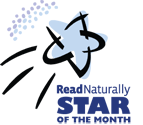It's now well past February, but the remnants of Valentine's Day still linger in my couch cushions. The handmade cards are always my favorite ones to find… especially the ones wishing a "Happy Valantine's Day." I asked my first grader if he knew what makes the word Valentine so hard to spell. He guessed, "Because it's a long word," which is half right. Long words are usually multisyllabic, and multisyllabic words usually have a schwa. The schwa sound—such as the one on the first "e" in Valentine—is notorious for making words difficult to read and spell.
Read more I recently worked with a second grader who showed me a paragraph he wrote about helping the “oshin.” His thoughtful ideas were right on the mark. His spelling, however, was not. When this boy reads books about the ocean, complete with pictures and context clues, he can read the word without hesitation. But when I later showed him the word “ocean” on its own, he had no idea what it said. What’s going on here?
Read more Dyslexia exists in all cultures and all languages. However, it does not impact learners in every culture in equal measure; the severity of dyslexia’s impact partially depends on the language a person is learning to read.
Read more America has been celebrating Disability Pride Month every July ever since passing the Americans with Disabilities Act (ADA) on July 26, 1990. Recognizing and celebrating individuals with disabilities should be an everyday, every-month practice, but we appreciate having a calendar month dedicated to this work—especially since helping students with disabilities and learning differences is a big part of what we do here at Read Naturally.
Read more Signs for Sounds is a phonics-based spelling program that aligns with the Science of Reading. This program teaches phonics elements and builds mastery in encoding and decoding words with these elements. It also builds mastery in encoding and decoding high-frequency words that do not follow regular phonics patterns.
Read more When will your students finally learn to spell the word “finally”? Maybe when they learn to spell the word “maybe.” “Especially” is an especially hard word to spell, and let’s not even discuss how our friends at school spell the words “friends” and “school.” They’re probably all spelling “probably” and "too" wrong, too, and why does everybody seem to spell “everybody”—and “everything”—wrong?
Read more If you work with beginning or developing readers, chances are you’ve encountered a student who has difficulty identifying certain lowercase letters. While uppercase letters are more easily distinguished, lowercase letters like b, d, p, and q—which look very similar—tend to cause confusion.
Read more The school year is in full swing, which means you’ve already corrected dozens of spelling mistakes in your students’ work. Do you find yourself correcting the same words over and over? How many times a week do you encounter the infamous “alot”? Will your students ever learn to spell the word “probably”?
Read more Quick Phonics Screener (QPS), developed by renowned literacy expert Dr. Jan Hasbrouck, is one of our most popular assessment tools. Teachers who have used QPS can attest to the fact that it is a convenient, inexpensive, and accurate way to identify individual students’ strengths and instructional needs in phonics/decoding. Once these needs are identified, teachers can make informed decisions about how to support students in their literacy development. We are pleased to announce that this handy tool is now upgraded and better than ever!
Read more In elementary school, I remember participating in a reading incentive program with a simple premise: The more books I read, the more points I’d receive toward a reward. Because of the reward, my classmates and I were highly motivated to spend our free time reading. What’s not to love about a program like that?
There was just one problem. I could read a long, challenging chapter book slightly above my reading level in the same amount of time it took my classmate to read a dozen quick, easy books below his reading level. Who earned more points? My classmate. What did I learn? Quantity beats quality. Don’t challenge yourself.
The program had a fantastic mission, but there was an unintended consequence for me and many other students. Unfortunately, this kind of thing happens often in schools. The only way to avoid it is for teachers to take the time to scrutinize the practices and programs they put to use in their classrooms. Are we doing things out of habit or because others are doing them? Or are we doing things because they truly promote learning? A good educator is one who observes and adjusts—constantly and relentlessly.
Read more  Share your student’s success story—nominate him or her for our Star of the Month award. Win a Barnes & Noble gift card for the student and a Read Naturally gift certificate for your class!
Share your student’s success story—nominate him or her for our Star of the Month award. Win a Barnes & Noble gift card for the student and a Read Naturally gift certificate for your class!